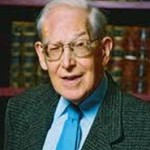 Dr. Sam Storms has written an article today entitled “DID PRINCE KNOW THE PRINCE OF PEACE?” – original source many have wondered whether or not he might have known Jesus Christ as his Savior. I must confess that I never followed the career of Prince and I never intentionally listened to any of his music. I say “intentionally” because somewhere along the way I may have heard him sing, even though I wouldn’t have known who it was at the time. But I’m not here today to assess his talents as a musician. I’m sure many reading this were fans. I was not.
Dr. Sam Storms has written an article today entitled “DID PRINCE KNOW THE PRINCE OF PEACE?” – original source many have wondered whether or not he might have known Jesus Christ as his Savior. I must confess that I never followed the career of Prince and I never intentionally listened to any of his music. I say “intentionally” because somewhere along the way I may have heard him sing, even though I wouldn’t have known who it was at the time. But I’m not here today to assess his talents as a musician. I’m sure many reading this were fans. I was not.
In any case, reports are that Prince was at one time a Seventh-Day-Adventist (a religious group with which former presidential candidate Dr. Ben Carson affiliates). But from all that I’m hearing, Prince converted and became a Jehovah’s Witness. Some may think that because he was open and active in his practice of this religious faith that he was a born-again Christian, a follower of the Jesus of the Bible.
Rest assured, I’m no man’s judge. But I am the judge (as you must be also) of whether or not claims made by certain religious sects, cults, or other groups align with the teaching of the Bible. And I can say without hesitation that the teachings of the Jehovah’s Witnesses do not.
Several things about their understanding of God and Christ should be noted.
First, Jehovah’s Witnesses deny the truth of the Trinity. The doctrine of the Trinity, so they argue, is a Satanic invention which originated in ancient Babylon (@ 2,200 b.c.). The Jehovah’s Witnesses are, strictly speaking, Unitarian in their understanding of God.
Second, prior to his earthly advent Jesus Christ was known as Michael, the archangel. He is a creature, the first product of Jehovah God’s creative work. He was neither then, now, nor will he ever be equal with Jehovah. In this sense the JW’s are akin more to the fourth-century heresy of Arianism than they are to evangelical Christianity. NT scholar Bruce Metzger has rightly pointed out that according to JW theology, “Throughout his existence . . . Jesus Christ never was co-equal with God” (“The Jehovah’s Witnesses and Jesus Christ: A Biblical and Theological Appraisal,” Theology Today, 70). He is not eternal, so say the JW’s, because, to use the words of Arius himself, “there was a time when he was not” (Metzger, 70).
Third, Jehovah’s Witnesses provide their own distinct (and distorted) translation of John 1:1 that reveals much of their theology. According to what is known as the New World Translation (NWT), John 1:1 reads as follows: “Originally the Word was, and the Word was with God, and the Word was a god.” Metzger points out that a footnote which is added to the first word, “Originally,” reads, “Literally, ‘In (At) a beginning’” (74). This rendering is more destructive than even they realize, for it is tantamount to an affirmation of polytheism (the existence of many gods). Continue reading →



